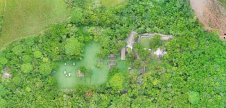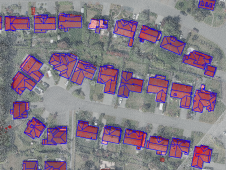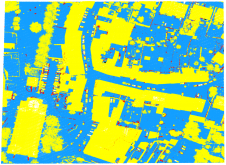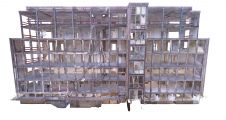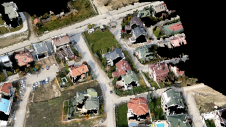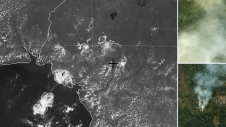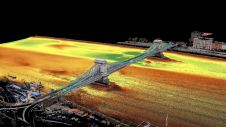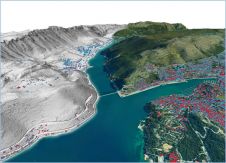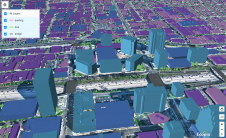Land Reform, Data Revolution
国家土地登记册如何对卢旺达的生活产生积极影响
Thierry Ngoga, Head of Support to State Capability at AGRA, considers the valuable lessons offered by Rwanda’s recent land governance reforms.
In Africa, land reform can be a highly complex and political process. As a result, governments are often reluctant to engage in land reform programmes, preferring instead to maintain informality and flexibility in this area. But for those countries that do change the way land is held and administered, the benefits can be significant. Here, Thierry Ngoga, Head of Support to State Capability at AGRA, considers the valuable lessons offered by Rwanda’s recent land governance reforms.
Land reform, properly executed, can help to increase tenure security and improve land management, administration and investment. The positive impact such developments can have on peace and social stability are well established. But few countries have assessed the wider benefits of land reform to their national economies.
They say data is the new oil, powering the information economy the way oil once powered industry. Through land reform, governments can generate a wealth of land data, the availability of which has major positive implications for sectors such as natural resource management, trade and business, construction, industrial development, banking and finance. Increased access to land data can also drive progress in revenue collection, urbanisation, mortgage management and job creation, helping countries to accelerate socioeconomic development.
因此,这些多部门的早期实现是否可以帮助激励国家开始急需的土地改革计划?以及如何进行土地改革以最大化这些优势?
Rwanda’s land registration revolution
In my home country of Rwanda, over the last fifteen years the government has implemented a major and multifaceted programme of land reform – the Rwanda Land Tenure Reform (RLTR) scheme. The benefits have been widespread and transformational. Under RLTR, the number of title documents collected by landowners has increased from 900,000 in 2012 to over 8.2 million in 2020. Registered transactions have also risen from about 10,000 in the 2013/14 financial year to just over 547,000 between 2015 and 2020.
该生成的土地和相关数据的登记不仅可以创建合法土地登记册,而且还可以创建空间土地。在RLTR的领导下,两者都完全集成到一个国家土地登记册中,这使得更容易确定法律和地astral土地持有。这些发展对卢旺达生活的许多方面产生了积极影响。
例如,该系统有助于增强性别平等,这是由新的性别 - 分散数据证明的。截至2020年6月,在卢旺达的1,150万登记土地包裹中,有210万人被注册为妇女作为事实上的所有者,男性为120万,扭转了土地所有权的数十年不平等。调查还表明,四分之三的女性感到有能力看到自己的名字在土地头衔上,这可能会对社会中的女性产生积极的敲门效应。
RLTR has also stimulated employment opportunities, with previously underdeveloped professions such as land surveying and valuing receiving a much-needed boost through increased demand – both in the field and through formal training. Indeed, with more universities now offering courses in land management, surveyors and valuers have found their knowledge and skills much sought after in recent years.

System linkage and interoperability
但是,土地数据的数字化一直是卢旺达土地注册计划最具变革性的方面之一。通过新的数字土地注册中心,RLTR在土地治理方面进行了开放的数据革命,促进信息访问和共享,同时使与土地相关的交易更快,更高效,更透明。例如,通过SMS,卢旺达内部和外部的感兴趣方现在可以访问有关土地规模,用法和任何相关法律责任的信息。
In urban areas, people now have a clearer understanding of designated terms of land use, spatial delimitation of lands, and the rights attached to them. And in rural areas, the spatial demarcation and registration of forests, mining sites and lakes makes it easier to manage these and other natural resources and accurately monitor change in land use. Indeed, as competition for land increases, particularly between urban and agricultural communities, RLTR datasets are helping to guide efficient land use planning. In a small country with a rapidly growing population, these developments are of huge significance.
Elsewhere, interoperability between the Land Administration Information System (LAIS-digital land register), the national mortgage register, and Rwanda’s ID project, has helped to establish the legitimacy of land claims, enabling the correct allocation of land leases and certificates. Online system linkages with the Rwanda Revenue Authority have also improved oversight of land ownership and increased the number of taxed and titled parcels. These measures have led to significant risk reduction and minimised opportunities for fraudulent transactions and land grabbing. They have also helped to ensure all land lease and fixed asset taxes are paid regularly and in full.
Long-term gains
The lesson from Rwanda, then, is clear: a systematic, well-planned and well-executed land reform programme can deliver exponential benefits across a range of sectors, enhancing overall national performance. Indeed, following the rollout of the RLTR, Rwanda’s rating in the World Bank’s Doing Business Index is on the rise. Between 2012 and 2019, for example, the country jumped from sixty-first to third place on the ‘ease of registering property’ indicator.
I personally believe Rwanda’s success can foment a revolution in land registry in Africa, presenting an opportunity to incentivise reform through valuable data generation and cross-sector system enhancement. What governments need to understand is that the long-term gains of data-driven progress far outweigh the quick wins of informal, opportunistic land management.
但是,如果其他国家遵循卢旺达的例子,那么他们以整体和包容的方式计划至关重要。他们需要合并一系列部门和利益相关者,以确保听到所有声音,并纳入所有需求。鉴于土地改革产出的广泛社会,经济和环境意义,高级政治支持也至关重要。的确,这些努力应由最高领导力结构带头,并全面参与和协调关键的前线部委。只有通过这些方式,将改革与更广泛的发展议程联系起来,并将数据革命的车轮设定为运动。

Make your inbox more interesting.Add some geo.
Keep abreast of news, developments and technological advancement in the geomatics industry.
Sign up for free

